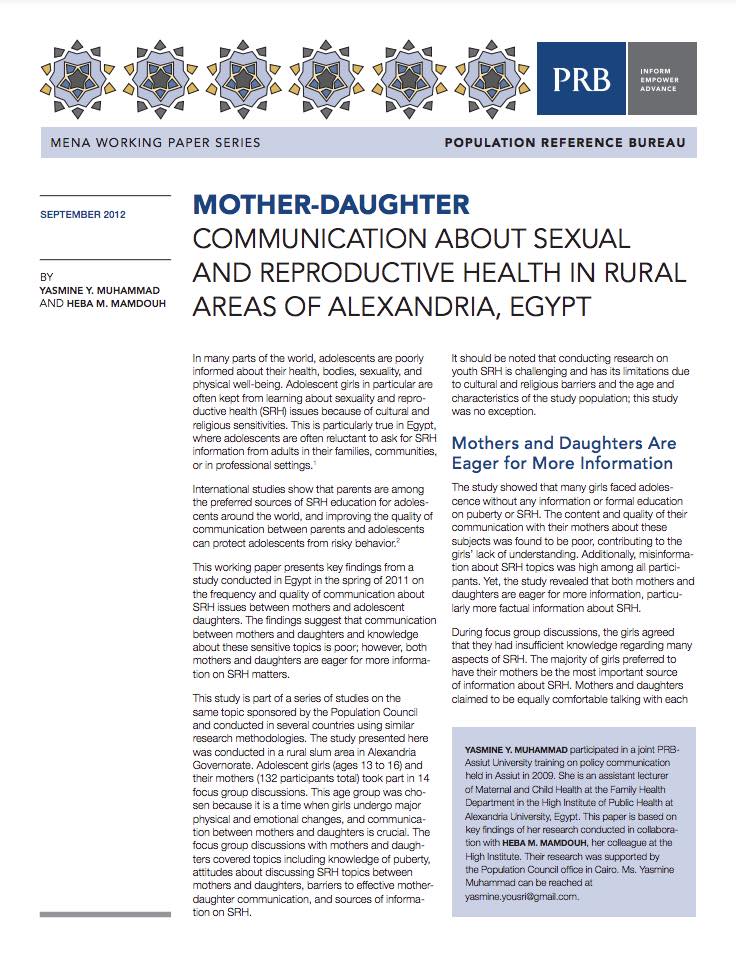PRB Discuss Online: Finding Ways to Improve Child Health
(2008) Each year, nearly 10 million children die, mostly from preventable and treatable causes. Millions of children in low-income countries suffer from long-term illnesses, malnutrition, and injuries that limit their life options. What can we do to improve children's health and save lives in low-income countries? What are the links to mother's health?


